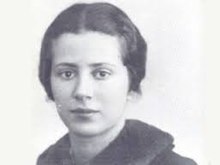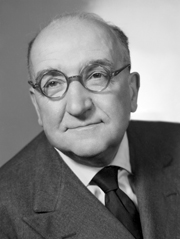
Adone Alvaro Ugo Natale Camillo Zoli was an Italian politician who served as the 35th prime minister of Italy from May 1957 to July 1958; he was the first senator to have ever held the office.

Altiero Spinelli was an Italian communist politician, political theorist and European federalist, referred to as one of the founding fathers of the European Union. A communist and militant anti-fascist in his youth, Spinelli spent 10 years imprisoned by the Italian fascist regime. Having grown disillusioned with Stalinism, he broke with the Communist Party of Italy in 1937. Interned in Ventotene during World War II, he, along with fellow democratic socialists, drafted the manifesto For a Free and United Europe in 1941, considered a precursor of the European integration process.

The European Federalist Movement was founded in Milan in 1943 by a group of activists led by Altiero Spinelli. The principles which inspired its foundation are contained in the Ventotene Manifesto, drawn up in 1941 by Spinelli himself, Eugenio Colorni, Ursula Hirschmann and Ernesto Rossi, and circulated by the in May 1943 circulated L'Unità europea periodical. Vayssière notes that the manifesto is widely seen as the birth of European federalism. Spinelli (1907–86), a former Communist, became a leader of the federalist movement due to his primary authorship of the Manifesto and his postwar advocacy. The manifesto called for a break with Europe's past to form a new political system through a restructuring of politics and extensive social reform. It was presented not as an ideal, but as the best option for the Europe's postwar condition.
Avanti! is an Italian daily newspaper, born as the official voice of the Italian Socialist Party, published since 25 December 1896. It took its name from its German counterpart Vorwärts, the party-newspaper of the Social Democratic Party of Germany.

The Ventotene Manifesto, officially entitled For a Free and United Europe. A Draft Manifesto, is a political statement written by Altiero Spinelli, Ernesto Rossi, and Eugenio Colorni, while they were imprisoned on the Italian islet Santo Stefano of the island of Ventotene during World War II. Completed in June 1941, the manifesto was circulated within the Italian Resistance, and it soon became the programme of the Movimento Federalista Europeo. It called for a socialist federation of Europe and the world. In the text, European federalism and world federalism are presented as a way to prevent future wars. Vayssière notes that the manifesto is widely seen as the birth of European federalism. Spinelli, who was later elected to the European Parliament within the Italian Communist Party lists, became a leader of the federalist movement due to his primary authorship of the Manifesto and his postwar advocacy. The manifesto called for a break with Europe's past to form a new political system through a restructuring of politics and extensive social reform. It was presented not as an ideal, but as the best option for Europe's postwar condition.
Nicla Vassallo, is an Italian analytic philosopher with research and teaching interests in epistemology, philosophy of knowledge, theoretical philosophy, as well as gender studies and feminist epistemology. She is currently a Full Professor in the Department of Philosophy at the University of Genoa, a Research Associate of National Research Council, and on List of alumni of King's College London. She also is a poet and lives in Rome.

Eugenio Curiel was an Italian-Jewish physicist, a prominent figure of the Italian resistance movement. He was awarded a gold medal (posthumously) for military valour.
Ugo Spirito was an Italian philosopher. At first a fascist political philosopher and subsequently an idealist thinker, he was also an academic and a university teacher.

Eugenio Scalfari was an Italian journalist. He was editor-in-chief of L'Espresso (1963–1968), a member of Parliament in Italy's Chamber of Deputies (1968–1972), and co-founder of La Repubblica and its editor-in-chief (1976–1996). He was known for his meetings and interviews with important figures, including Pope Francis, Enrico Berlinguer, Aldo Moro, Umberto Eco, Italo Calvino, and Roberto Benigni.
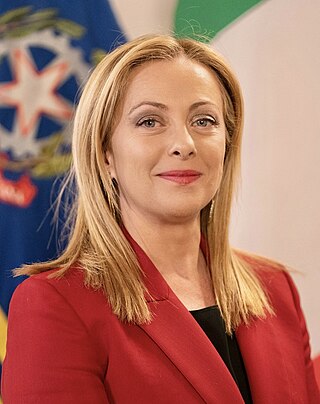
Giorgia Meloni is an Italian politician who has been serving as the prime minister of Italy since October 2022, the first woman to hold this position. A member of the Chamber of Deputies since 2006, she has led the right-wing Brothers of Italy (FdI) political party since 2014 and has been the president of the European Conservatives and Reformists Party since 2020. In 2024, Forbes ranked Meloni as the third most powerful woman in the world and she was listed among the most influential people in the world by Time magazine, while Politico ranked her as the 2025 most powerful person in Europe.

Giustino Fortunato was an Italian historian and politician.
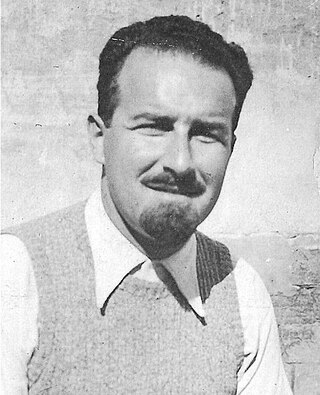
Eugenio Colorni was an Italian philosopher and anti-fascist activist.

Barbara Spinelli is an Italian politician.

Eugenia Romanelli is an Italian author and journalist.
Bianca Bianchi was an Italian teacher, socialist politician, feminist, and writer.

The 2020 Italian by-elections were called to fill seats in the Parliament that became vacant after the 2018 general elections. In 2020, by-elections were held for the Chamber of Deputies the Senate of the Republic.

Chiara Frugoni was an Italian historian and academic, specialising in the Middle Ages and church history. She was awarded the Viareggio Prize in 1994 for her essay, Francesco e l'invenzione delle stimmate.
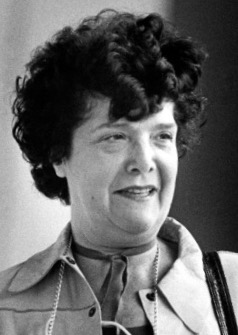
Carla Voltolina, later Carla Pertini, was a journalist, Italian partisan, and psychotherapist. She undertook investigations into prostitution in Italy and provided therapy at hospitals and addiction-treatment clinics across Italy.
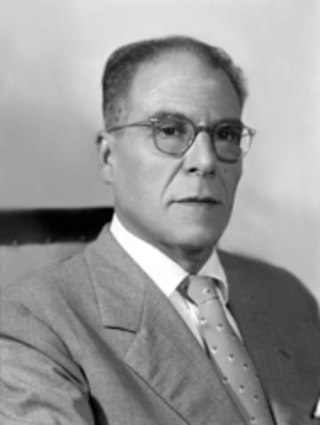
Velio Spano was a Sardinian-born antifascist activist and, at times, fighter through the Mussolini years. He is also remembered for his writings: he later came to be identified, increasingly, as a journalist. After the leader fell from power in 1943 and Italy was liberated in 1945, he became an increangly mainstream politician, serving as a member of the senate between 1948 and 1963, and playing an increasingly prominent leadership role in the Communist Party.
Eva Colorni (1941–1985) was an Italian economist.
